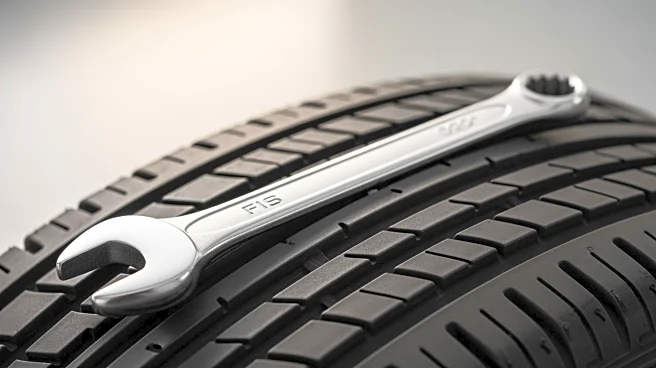What's Happening?
Victor Sheppard, an American driver, has achieved a remarkable milestone by driving a combined total of two million miles in two Toyota Tundras. This achievement underscores the durability and reliability
of Toyota's trucks. Sheppard's journey began with his first Tundra, which logged over one million miles before he transitioned to a second truck, which also surpassed the million-mile mark. Toyota recognized Sheppard's accomplishment by providing him with a new Tundra and examining his 2007 model to study the wear and tear on its components. This examination helps Toyota validate its durability claims and improve future vehicle designs.
Why It's Important?
Sheppard's achievement is significant as it highlights the importance of vehicle reliability and maintenance. In an industry often focused on new models and upgrades, this story emphasizes the value of long-term durability. For Toyota, it provides real-world data to enhance their engineering and design processes. Consumers benefit from understanding the potential longevity of their vehicles, which can influence purchasing decisions. The story also serves as a testament to the effectiveness of regular maintenance and quality parts in extending a vehicle's lifespan, offering insights for both manufacturers and vehicle owners.
What's Next?
Toyota's examination of Sheppard's high-mileage Tundra could lead to improvements in future models, potentially enhancing component durability and service guidelines. This could influence the automotive industry by setting new standards for vehicle longevity. Additionally, Sheppard's story may inspire other drivers to prioritize maintenance, potentially increasing demand for quality replacement parts and services. As manufacturers continue to study high-mileage vehicles, the insights gained could drive innovations in automotive engineering, benefiting consumers with more reliable and long-lasting vehicles.
Beyond the Headlines
This story also touches on cultural values surrounding consumerism and sustainability. In a society often driven by the latest technology and frequent upgrades, Sheppard's experience offers a counter-narrative that values longevity and reliability. It raises questions about the environmental impact of frequent vehicle turnover and the potential benefits of extending the life of existing products. This perspective could influence consumer behavior and industry practices, encouraging a shift towards more sustainable consumption patterns.









